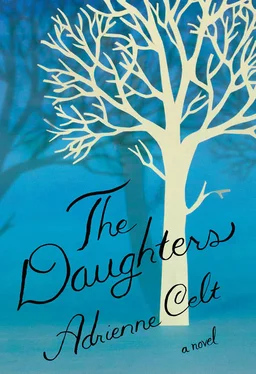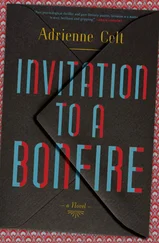But in fact he was born on a small country estate in Żelazowa Wola. He was christened in the same church in central Poland where his parents had been married, and he grew up under the watchful red turrets of the Warsaw Barbican. His family lived on the grounds of the Saski Palace, and as a boy Chopin played a small piano with heart-shaped legs under a window that looked down on trimmed trees and lawns as slick as seal’s fur.
Is it just the glamour of Paris that makes audiences wish it was the musician’s home? What about the romance of something star-crossed? Chopin left for France just before Poland rose up and was crushed down by the hand of the Russian Empire, making it unsafe for him to return. In all his time in Paris, Chopin never sought fluency in French and always kept a silver chalice filled with soil from his homeland.
Still, when he died the Parisians didn’t want to give him up. They collected their most buxom women and had them throw armfuls of roses over his grave to bury him deep below the French streets; their nattiest gentlemen poured out decanters of wine to confuse Chopin’s spirit and keep it happy in the company of Théodore Géricault, Dominique Vivant, and Vincenzo Bellini.
They kept his bones. The distals at the tips of his fingers that stroked the keys of his instrument; the elegant tibia; even the skull. An artisan made a death mask of his face, and reproductions of it hung in the best houses of Paris. But Poland, with all the power of the rusalka residing in her wet, rolling hills and icy streams, called his soul back. By decree of his sister, Chopin’s chest was cracked open and his heart removed to a marble pillar in the Holy Cross Church in Warsaw.
I used to imagine this with a hysterical vividness: the organ resting on a velvet pillow stuffed with down, surrounded by slick satin lining. All the fabric was red and glistened like exposed muscle tissue, a new warm chest for the heart to inhabit, with wooden ribs and an ivory clasp. And because a child’s imagination knows no boundaries of taste and is never stilled by fear of excess, the heart reposed with piles of rubies. There were holly berries and pomegranate seeds and the flesh of ripe figs burst open by their own internal weight. The heart was beating.
“No,” said my mother when I told her this fantasy. “Actually it’s preserved in cognac. Probably inside a glass bottle. I wonder”—she paused and wet her lips with whatever was in her cup—“how that affects the flavor of the cognac.” The sparkle in her eyes was truly indecent.
Sara sighed and leaned back in her chair. She closed her eyes and I shrank away from her, my nightgown brushing against my ankles. “It must be exquisite.” She laughed. “Or disgusting. Repugnant. Repellent. But still. A completely unique experience.”
Was Chopin Polish or was he French? You could say both and be satisfied. But people always want to tell a story that has loyalties. They want you to form a hierarchy of love.
As a child, I listened at night for dark clickings. The sound of heels with the tips danced off, a whiff of cigarette smoke curling under the door. I wasn’t allowed to stay up waiting for my mother, but sometimes I would snap awake in the middle of the night and know she was there, her key easing into the lock, a breathy curse echoing when she turned a heel. I could picture her routine perfectly: making her way to the hallway table and balancing on one foot, her weight bearing down with one palm on the table. One shoe slid off, then the other. Tucking her hair behind her ears in the dark mirror.
I was not a part of her routine, a kiss good night was not usual. Most often I would drift back to sleep while she was running the bathroom tap; she liked to fall asleep with legs freshly shaved, which is a habit I have stolen from her. Sara’s nocturnal behavior was animalistically private — you might make educated guesses about what she would do, predictions based on observation. But her motivations were always her own. She ignored me often enough to lead me to expect it. She loved me just enough to pit my stomach with yearning.
Most nights she would leave the bathroom and go straight to her bed, bare feet making sticky, quiet steps back down the hallway. But sometimes this: my door opening a crack, letting in a slim line of moonlight that leaked from the windows into the hall. And my mother’s figure looking down on me. Often I would pretend to be sleeping, and she would tiptoe to my bedside, lay the back of her hand across my hot cheek. If she happened to come in following a nightmare, she would crawl into my bed and hold me, sing a lullaby against the rhythmic gulping of my sobs. “Swing Low, Sweet Chariot.” “All the Pretty Little Horses.” Her songs were gravel, loneliness, a puff of smoke. The most beautiful songs I’d ever heard.
“ Lalka ,” she would whisper. “Come on, you know the words.”
The dark wrapped around us as Sara shifted and settled, and we kept our voices quiet so that Ada wouldn’t hear us and wake up. It was more than politeness that kept us hushed: we were swaddled by the delicious notion of being alone in the whole black world. Two sailors singing a private language on the night’s inky sea. I felt her breath warming the back of my head and fell asleep, her child, her star.
At some point she would slip out the door and back to her bedroom and be swallowed up until ten or eleven or noon the next day. She would emerge with a flowered silk dressing gown pulled around her, toenails visibly crimson when she sat down and propped her foot up on a chair in the kitchen. She would already be smoking as she walked from her room, and when she looked at me I felt like a stranger. A blank.
“Your girl’s got that face again,” she’d say to Ada. “Why don’t you take her away for a little while.”
Poland is sometimes called the Christ of Nations because of the number of times her borders have been invaded, her land divided by conquering hands. Germany, Russia, the Bohemians, the Mongols — no muster of troops ever abandoned its chance to slice the country up and take a bite. At times Poland has existed nowhere but in the hearts of her remaining people, and so she shone brighter there than she would have in the hands of real, imperfect kings and ministers. And the damage that was done to the nation became, in its own way, a holy thing. A sacred basis for offense.
It makes a person dangerous to love their own trouble. My mother is the best example of this that I know. Like Poland — her homeland of conception, if not of birth — she blazed with glory through her young life. She strutted into the Green Mill jazz bar at age sixteen in full light of day and told them she was there to audition for a job. There were no open positions, but they let her sing on a lark and she walked out with the promise of an opening act on Tuesdays.
She painted dark lines around her eyes like Cleopatra, and dark red onto her lips like blood. She vamped. She dressed to precision. If she wanted a man she blew in his ear and he would follow her anywhere. Then she’d abandon him there. I never knew my father, because she wanted it that way. Whoever he was, she just didn’t care.
Ada stood behind Sara with pins in her mouth and refitted her clothes to give her the dimensions of architecture. When Sara tilted her head to the side in a gown her mother had sewn for her, a person saw the Leaning Tower of Pisa. Ada curled Sara’s hair. She laughed with her about the women whose jobs Sara usurped with a wink. And she told her how she was a credit to Greta. A person worth making a sacrifice for to the devil.
When I was born, Ada took all these gifts back and one by one she gave them to me. It happened almost immediately, the transfer of love, the replacement of the legacy on my still-soft head. How can I know this? I was only a baby. I should think that pampering and love is simply my due.
Читать дальше












